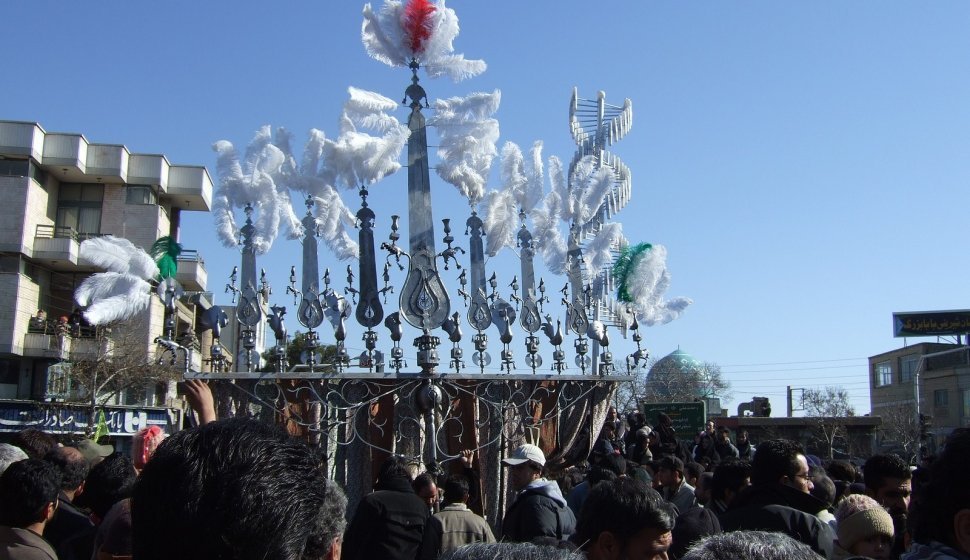- Home
- Religious Holidays
- Islamism
- Ashura

Ashura Dates in 2026, 2027 and 2028
Ashura is celebrated at the following dates:
- Friday, June 26, 2026 (estimated)
10 Muḥarram 1448 - Tuesday, June 15, 2027 (estimated)
10 Muḥarram 1449 - Saturday, June 3, 2028 (estimated)
10 Muḥarram 1450
Ashura is a holiday observed worldwide by all Muslim braches, but it is celebrated mostly by Shi'ite Muslims1. It occurs annually on the tenth day of the first month of the Islamic lunar calendar, Muharram1.
Origins
Following the Hijra in 622 AD, or the great migration of Muhammad and his followers from Mecca to Yathrib, Muhammad declared Ashura a day for fasting and atonement2. The day traditionally commemorates both the day Noah got off the ark and the day when Allah saved Moses from the Egyptians2. For Shi'ite Muslims however, the holiday's importance comes from memorializing the death of Hussein Ibn Ali2.
Hussein was born the grandson of Muhammad in 620 AD3. Following the death of Muhammad, the Muslin world experienced severe political unrest as Yazid of the Ummayad dynasty came to power3. Because of Hussein's position as a respected leader in the community, Yazid demanded his allegiance in order to cement his own status as a legitimate ruler4. Hussein refused this request and claimed that he, "will never give Yazid my hand like a man who has been humiliated, nor will I flee like a slave...I have not risen to spread evil or to show off...I only desire to enjoin good values and prevent evil"4. After vocalizing his discontent with Yazid, he and his followers set out to seek safety in Mecca5. Upon his arrival at Karbala, he was greeted by an opposing army of about four thousand men sent by Yazid5. A small battle ensued and Hussein was killed5. The death of Hussein, therefore, signifies the day the Muslim world split into two distinct sects: the Sunnis and the Shi'ites6.
Celebration
The celebration of Ashura widely varies between countries and between religious sects7. For Sunni Muslims, the day is celebrated quietly and includes the option to fast8. For Shi'ite Muslims, Ashura is a day for solemness and remembrance9. For those who are able, a pilgrimage is made to the shrine in Karbala which memorializes the death of Hussein9. People often wears dark clothing for mourning and do not show any outward expression of happiness or enjoyment9.
In many countries, such as Iraq and Afghanistan, large festivals of self-flagellations are held to emulate the suffering of Hussein10. Overall, the purpose of the holiday is to ask Allah for forgiveness, show devotion to Hussein, and commemorate his pain and suffering11.
